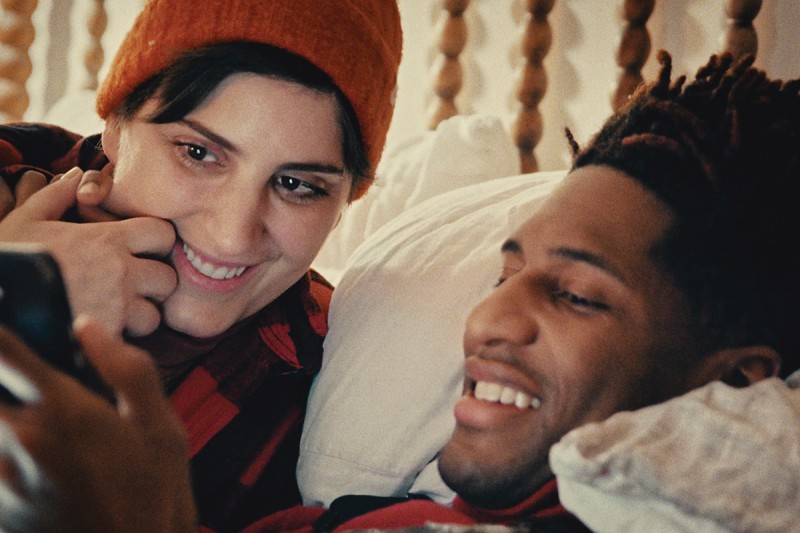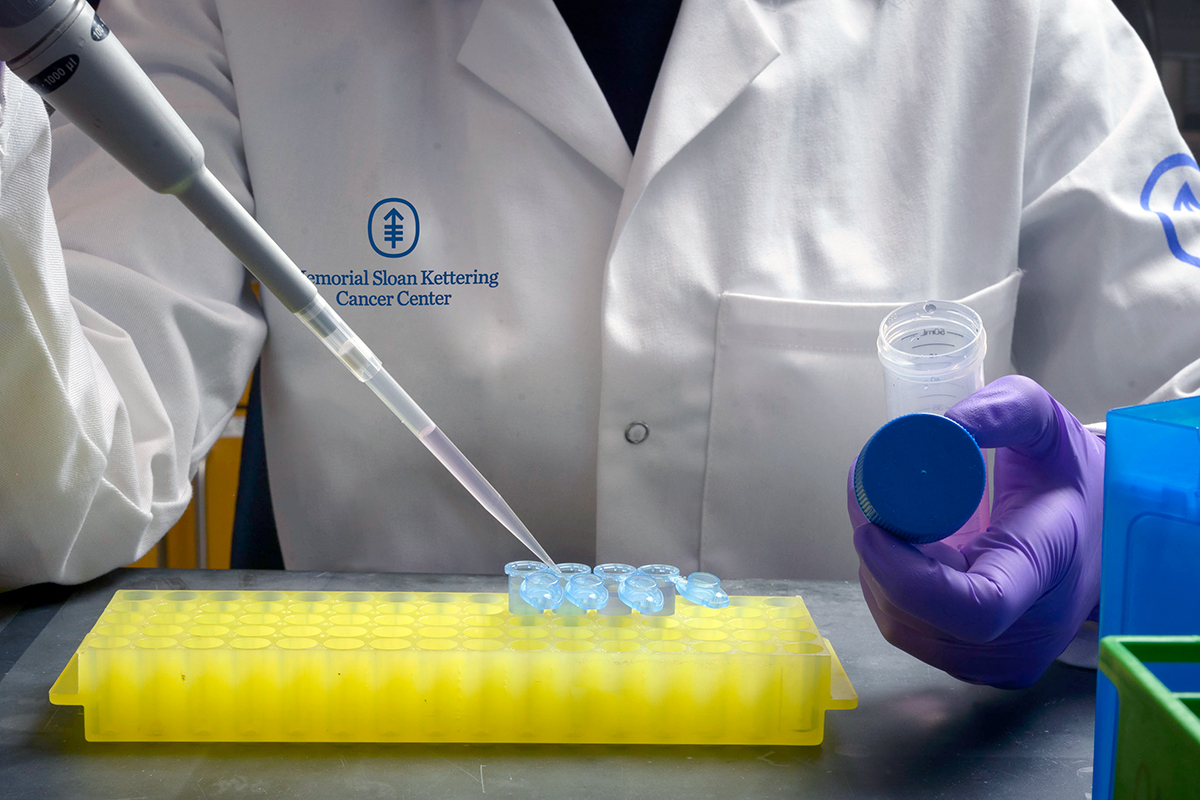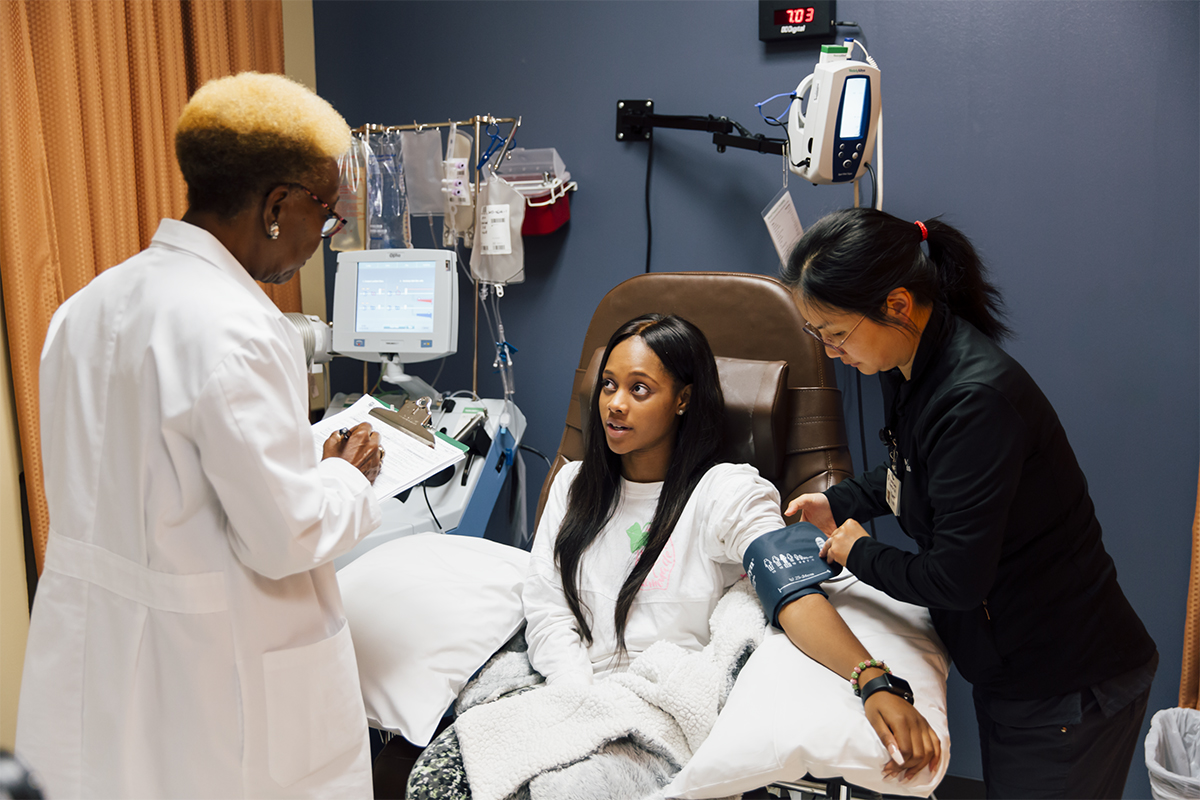
Campaign — Inspired by Matthew Heineman’s New Documentary, ‘American Symphony,’ Featuring Jon Batiste and Suleika Jaouad — Aims To Bridge the Blood Stem Cell and Marrow Donor Gap and Give Hope to Patients in Need
Memorial Sloan Kettering Cancer Center (MSK) and NMDP/Be The Match® today announced the launch of the “American Symphony: Become a Lifesaver” campaign to increase registration of blood stem cell and marrow donors to the national registry and improve access to blood stem cell transplants, especially for people in ethnically diverse communities. The campaign is inspired by Academy Award®-nominated and Emmy Award-winning filmmaker Matthew Heineman’s documentary American Symphony, streaming today on Netflix, which follows Grammy-, Academy Award-, and Golden Globe-winning musician Jon Batiste as he prepares for a Carnegie Hall composition while his wife, New York Times best-selling author Suleika Jaouad, faces a leukemia recurrence and undergoes a second bone marrow transplant at MSK.
Tonight, MSK and NMDP/Be The Match will host an in-person screening in New York City, which will feature a panel discussion with Batiste, Jaouad, Heineman, and Jaouad’s doctor, Sergio Giralt, MD, Bone Marrow Transplant Specialist and Cellular Therapist at MSK. Through the campaign, MSK and NMDP/Be The Match are encouraging people to make a lifesaving impact by signing up for the NMDP/Be The Match Registry® as a potential donor, spreading the word on social media or in their community, or giving a monetary gift to help with patient assistance grants. The campaign will conclude on March 8, 2024, marking 100 days after the launch date, a nod to the typical isolation period after a bone marrow transplant.
Every year, 12,000 people in the United States are diagnosed with life-threatening blood cancers or other diseases, such as sickle cell, for which a blood stem cell transplant from an unrelated donor may be their best or only hope for survival. Approximately 70% of patients who need a transplant do not have a fully matched donor in their family, so they must find an unrelated donor. The urgency to bridge the donor gap is evident, and as our population gets more diverse, the need for young, ethnically diverse individuals to join the registry has increased.
“In a world of heartbreak, how often do we get the chance to say we made a difference? How often do we, with something as simple as a cheek swab, get the chance to save a life? I have been the recipient of two lifesaving bone marrow transplants, made possible by a donor,” said Jaouad. “American Symphony gives us an intimate look at what it means to be on the receiving end of this — all the fear and all the hope — and thanks to the generosity of those who register to be donors, to emerge on the other side of it.”
“The golden rule still applies. You can save someone’s life in five seconds by doing a simple swipe,” said Batiste. “I am honored to use the platform of my music to share a message that saved my wife’s life and so many others. Be the change you want to see and watch all the goodness and inspiration that will come to you.”
“This was a very personal film for me. My father battled cancer for almost two decades, and his life was saved by an experimental treatment he received at Memorial Sloan Kettering Cancer Center. This is one of many reasons why I wanted to make this film, and we have an incredible opportunity to make an impact with this partnership,” said Heineman. “After watching, many people want to know how they can help, and we are thrilled to be working with Memorial Sloan Kettering Cancer Center and NMDP/Be The Match on a campaign to increase access to blood stem cell and marrow transplants.”

“For more than 50 years, MSK has been at the forefront of pioneering complex bone marrow transplant treatments and research. Our clinical teams’ unique expertise and dedication to advancing science and providing exceptional holistic patient care has led to improved outcomes and an expanded pool of potential donors,” said Selwyn M. Vickers, MD, FACS, President and CEO of MSK. “The ‘American Symphony: Become a Lifesaver’ campaign reaffirms our commitment to removing barriers that make blood stem cell transplants inaccessible and providing hope for patients worldwide. We are grateful to Jon, Suleika, and the entire American Symphony team for their support in this mission. Through this campaign, we aim not only to raise awareness but also to inspire and encourage more individuals to join the registry as potential donors, fostering a community of lifesavers dedicated to making a meaningful impact in the lives of those in need.”
MSK has been a leader in stem cell transplantation for more than five decades. In 1973, MSK doctors performed the world’s first successful transplant between a patient and an unrelated donor — a groundbreaking achievement that increased the possibility for patients to find donors outside their families, greatly expanding the use of these potentially lifesaving treatments. Since then, MSK clinicians have completed more than 10,000 transplants, making MSK the largest and most experienced bone marrow transplant (BMT) program in the New York metropolitan area. MSK researchers pioneered many of the transplant methods widely used today, and their expertise has improved outcomes and decreased the side effects of the transplantation process. In addition, the dedicated BMT program team at MSK, exclusively specializing in BMT and cell therapies, ensures that both adult and pediatric patients receive unmatched expertise and compassionate support throughout their care.
“There is a common misconception that donating stem cells is a painful and difficult procedure, which is typically not the case,” said Dr. Giralt. “Most donors share with me that they would do it again in a heartbeat because they know that they have the potential to save someone’s life.”

“The ‘American Symphony: Become a Lifesaver’ campaign aligns seamlessly with our vision to create a world where every patient can receive their lifesaving cell therapy,” said Amy Ronneberg, CEO of NMDP/Be The Match. “In order to provide equitable access, we must continue to diversify the registry and remove barriers to ensure that every patient, regardless of background, has a chance at a lifesaving transplant. Together with MSK, we are orchestrating a symphony of lifesavers that can make a profound impact on the lives of those battling blood cancers and diseases.”
NMDP/Be The Match has operated the world’s most diverse blood stem cell registry, uniting adult donors prepared to donate to strangers in need for more than 35 years. In this time, NMDP/Be The Match has played a pivotal role in orchestrating more than 125,000 blood stem cell donations, affording patients a precious second chance at life through transformative blood stem cell, marrow, or cord blood transplants. The organization also leads extensive research to improve transplant outcomes and provides patient support, education, and financial assistance to help patients and their loved ones successfully navigate their transplant journey.
For more information or find ways to get involved, visit the campaign web page at JoinTheSymphony.org, where you can register to become a potential donor, give a gift to support patient assistance, or help spread the word. To view the documentary, search for “American Symphony” on Netflix.
CONTACT
Annik Allen
[email protected]